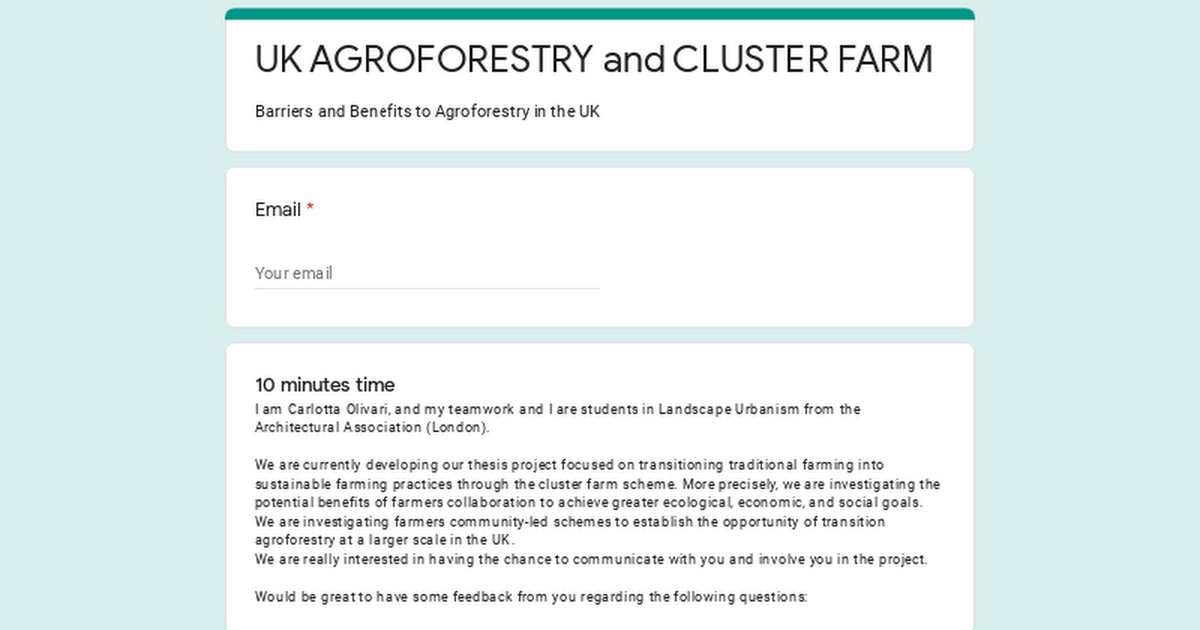Carlotta_Olivari
Member
- Location
- London
I am Carlotta Olivari, and my teamwork and I are students in Landscape Urbanism from the Architectural Association (London).
We are currently developing our thesis project focused on transitioning traditional farming into sustainable farming practices through the cluster farm scheme. More precisely, we are investigating the potential benefits of farmers collaboration to achieve greater ecological, economic, and social goals. We are investigating farmers community-led schemes to establish the opportunity of transition agroforestry at a larger scale in the UK.
We are really interested in having the chance to communicate with you and involve you in the project.
Would be great to have some feedback from you regarding the following questions:

We are currently developing our thesis project focused on transitioning traditional farming into sustainable farming practices through the cluster farm scheme. More precisely, we are investigating the potential benefits of farmers collaboration to achieve greater ecological, economic, and social goals. We are investigating farmers community-led schemes to establish the opportunity of transition agroforestry at a larger scale in the UK.
We are really interested in having the chance to communicate with you and involve you in the project.
Would be great to have some feedback from you regarding the following questions:





